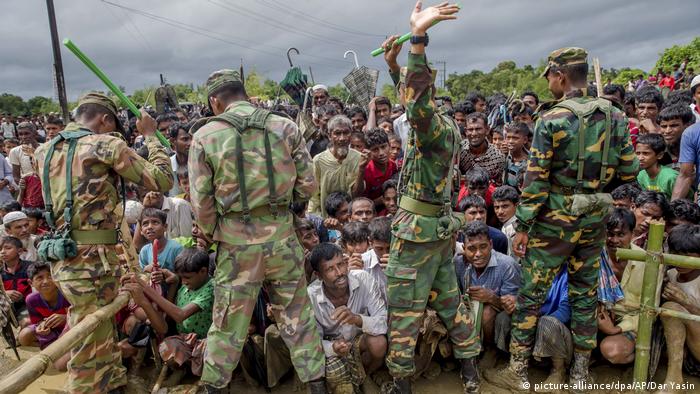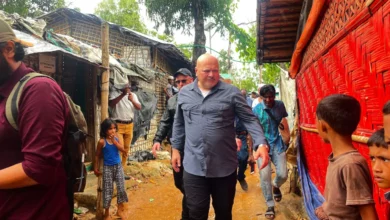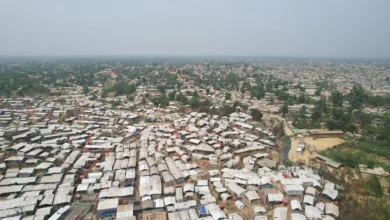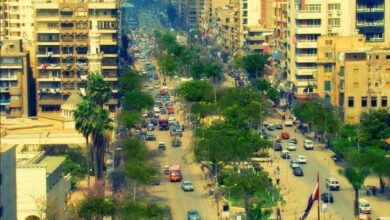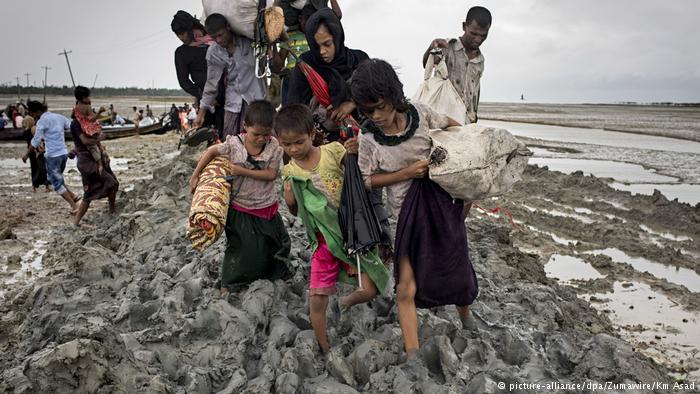
The state-run Global New Light of Myanmar newspaper reported more than 2,000 Rohingya had gathered along Myanmar’s coast after walking from their villages. Some were from the same Buthidaung townships as many of the victims of Thursday’s boat tragedy.
The total number of refugees leaving Myanmar has now been estimated at over 501,000.
More than a hundred Rohingya drowned trying to cross the Naf river that divides Myanmar and Bangladesh as they fled burning villages, reportedly set alight by soldiers and Buddhist groups. A boat capsized on Thursday leaving 60 feared dead and 23 bodies brought to shore. Many of the victims were children.
“Starting on Tuesday, they left their region, claiming that they felt insecure to remain because they were now living in a sparsely populated area, as most of their relatives had left for Bangladesh,” the Global New Light of Myanmar reported. The newspaper said officials had tried to assure the Rohingya they would be safe in Myanmar but villagers had replied that they “would still like to go to Bangladesh of their own accord.”
The UN had reported that the increasingly isolated Rohingya communities were receiving threats from local Buddhist groups to leave. No aid has reached the area since the end of August.
When the refugees do reach Bangladesh they join hundreds of thousands of others in camps where volunteers and international aid groups are trying to help them. The stateless Rohingya are unlikely to be given refugee status in Bangladesh.
On Sunday, Australian Foreign Minister Julie Bishop called for a political solution to the situation. “We are deeply disturbed by what’s going on in Rakhine state in Myanmar,” Bishop told ABC TV. Australia is providing humanitarian support to Bangladesh and working with Indonesia in the humanitarian response.
“We are deeply concerned that the persecution of a significant group of Muslim Rohingyas will be used by ISIS and other terrorist groups as part of their narrative to take up arms and to fight against the West,” Bishop said, referring to the “Islamic State” group.
Bishop greeted news that Myanmar leader Aung San Suu Kyi had confirmed she would allow UN and international representatives – including Australia’s ambassador – into the region on Monday.
Nobel Peace Prize winner Suu Kyi has come under pressure from international humanitarian groups and fellow Nobel laureates for failing to speak out against the violence being perpetrated on the Muslim Rohingya communities.
On Saturday, a portrait of Suu Kyi at the Oxford College where she studied was taken down and put in storage. A statement from St Hugh’s College did not say if the removal was linked to the ongoing crisis for the Rohingya in Rakhine state.
The United Nations has described the situation as “ethnic cleansing.”

